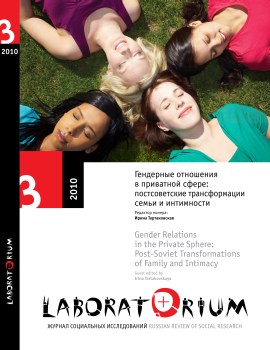The Experience of Parenting and Growing Up as Immigrants: A Discourse Analysis of Child-Rearing Practices in Russian-Israeli Families. Summary
The Experience of Parenting and Growing Up as Immigrants: A Discourse Analysis of Child-Rearing Practices in Russian-Israeli Families. Summary
Author(s): Claudia ZbenovichSubject(s): Social Sciences
Published by: Центр независимых социологических исследований (ЦНСИ)
Summary/Abstract: The paper studies socio-linguistic aspects of the interaction between Russian-Jewish immigrants with an intelligentsia background who came to Israel in the early 1990s and learned Hebrew, and their young Israeli-born children aged between 6 and 10. The choice of language plays a crucial role in intergenerational communication. The parents choose to speak Russian because they strive to instill late-Soviet cultural models in their children through everyday discourse. In doing so, they resort to authoritarian models of speech behavior, implicitly criticizing the egalitarian parent-child relations prevalent in wider Israeli society. By switching to Hebrew, children acquire a more adult position vis-à-vis their parents: they become discursively influential and turn into partners in the conversation. In this way, children destroy their parents’ representations of what a parent-child conversation should be like and what kind of speech behavior children should adopt.
Journal: Laboratorium. Журнал социальных исследований
- Issue Year: 2/2010
- Issue No: 3
- Page Range: 184-187
- Page Count: 4
- Language: English

